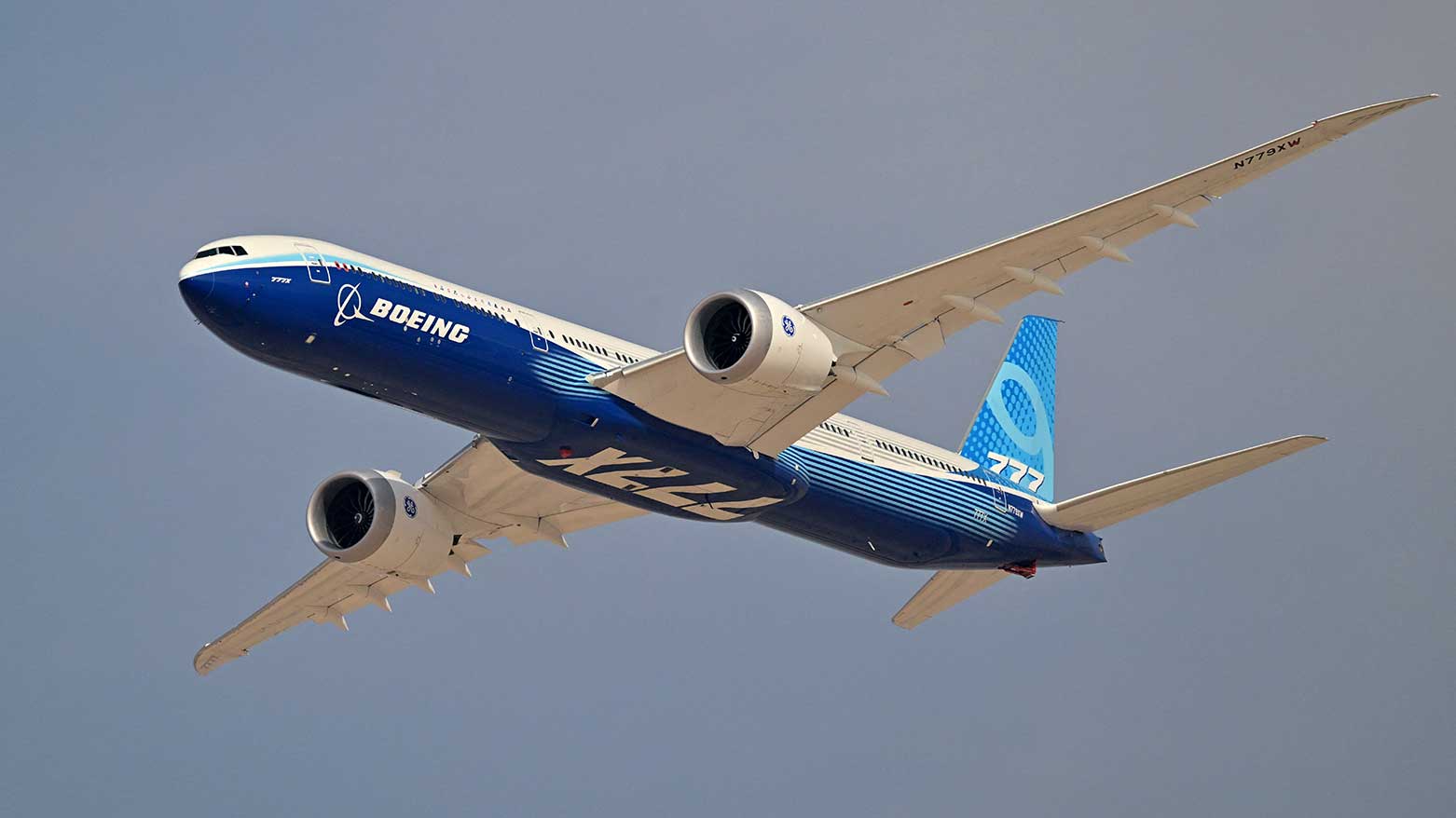Emirates’ $38 Billion Boeing Order Signals Strategic Deepening of U.S.–UAE Economic Ties and Reinforces Dubai’s Global Aviation Leadership
The record order of 65 Boeing 777X aircraft reinforces the UAE’s global aviation leadership while signaling renewed confidence in U.S. aerospace manufacturing amid delays and safety concerns.

ERBIL (Kurdistan24) — Emirates’ blockbuster $38 billion order for 65 Boeing 777X aircraft has injected fresh momentum into U.S.–UAE strategic ties, reaffirming both the airline’s long-term expansion plans and Washington’s central role in sustaining the Gulf state’s world-leading aviation sector.
The deal, unveiled on the opening day of the Dubai Airshow on Monday, signals the UAE’s continued confidence in American aerospace manufacturing at a time of industry turbulence—and underscores Dubai’s determination to preserve its status as home to one of the safest, most advanced, and most influential airlines in global aviation.
Emirates Airlines’ announcement of a $38 billion purchase of 65 Boeing 777X aircraft marks one of the most consequential commercial deals of the year, carrying significance far beyond the aviation sector.
The agreement underscores a renewed vote of confidence in Boeing as the U.S. aerospace giant grapples with production delays, safety controversies, and reputational challenges. For Washington and Abu Dhabi, the deal represents a fresh consolidation of economic interdependence, highlighting how defense, technology, and civil aviation remain at the center of a resilient U.S.–UAE partnership.
U.S. President Donald Trump’s visit to the UAE in May further deepened this trajectory, culminating in more than $200 billion in new commercial agreements across aviation, manufacturing, and advanced technologies. These included a $14.5 billion Boeing aircraft order by Etihad Airways and a $4 billion commitment by Emirates Global Aluminum to build a major smelter in Oklahoma.
The two sides also announced a sweeping 10-year, $1.4 trillion UAE investment framework in the United States, covering AI, semiconductors, renewable energy, and critical industrial supply chains. As part of this roadmap, the UAE pledged to expand its U.S. energy-related investments to $440 billion by 2035, solidifying one of the world’s fastest-growing economic partnerships.
At a time when global commercial orders increasingly intersect with geopolitical alignment, the commitment by Emirates sends a strong signal that the UAE continues to see long-term strategic and industrial value in maintaining deep ties with the American manufacturing ecosystem.
For the UAE specifically, the purchase reinforces the country’s position as a global aviation powerhouse and guardian of one of the safest and most advanced airline fleets in the world. Emirates—already the planet’s most profitable airline—has long used its fleet strategy as an extension of both economic ambition and national branding.
Its decision to expand its Boeing wide-body fleet to unprecedented scales aligns with Dubai’s broader model: leveraging aviation as a pillar of economic diversification, tourism, and global connectivity.
The order ensures that Emirates remains equipped with next-generation aircraft at a time when competition among major Gulf carriers intensifies, and when global passenger expectations increasingly hinge on efficiency, safety, and ultra-long-haul capability.
The investment in GE9X engines and potential future upgrades to larger 777X variants further demonstrates the UAE’s strategy of pairing technological leadership with long-term operational resilience.
Under the agreement, deliveries of the much-delayed 777X are scheduled to begin in the second quarter of 2027. Emirates, already the largest customer of the Boeing 777 program, now has on order 270 777X aircraft, in addition to 10 777 freighters and 35 Boeing 787s.
Emirates Group Chairman and CEO Sheikh Ahmed bin Saeed Al Maktoum stressed that the order reflects deliberate growth planning, dismissing speculation that the airline’s massive backlog is unsustainable.
Despite frustrations over prior delays, he emphasized that every aircraft fits within the company’s long-term expansion strategy, which continues to hinge on global route growth and fleet modernization.
Boeing’s ongoing safety and legal challenges formed a subtle backdrop to the announcement. After high-profile incidents, including the Air India crash in June that killed 260 people, the company has faced intense scrutiny.
Delays in the 777X program forced Emirates to extend the life of its existing fleet, including refurbishing its Airbus A380s, now out of production. The new order nonetheless suggests that Emirates believes Boeing can overcome its operational constraints and deliver the next-generation aircraft needed to support global aviation demand.
As the Dubai Airshow continues, the transaction stands as both an economic milestone and a geopolitical statement about the enduring intersection of aviation, national strategy, and international partnerships.
Emirates’ $38 Billion Boeing Order Signals Strategic Deepening of U.S.–UAE Economic Ties and Reinforces Dubai’s Global Aviation Leadership!
— Kurdistan 24 English (@K24English) November 17, 2025
The record order of 65 Boeing 777X aircraft reinforces the UAE’s global aviation leadership while signaling renewed confidence in U.S.… pic.twitter.com/o747stqeBa